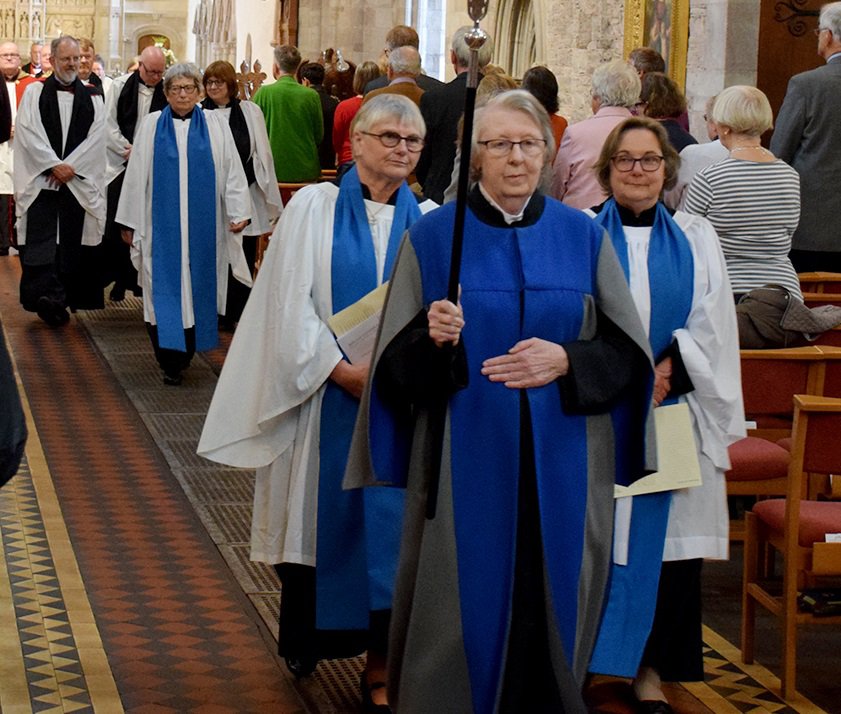Readers

When Jesus was on earth he was the fountainhead of all ministry. He was the Apostle, Prophet, Evangelist, Pastor and Teacher, bringer of mercy, intercessor, ruler, deacon, exhorter and giver - all contained in one person. He was the fullness of all ministry. However, it was Jesus’ desire that this ministry of life and healing be taken to the ends of the earth. The book of Ephesians tells us that when Jesus ascended he broke down this fullness of ministry into smaller measures and gave a measure to this one and that until the whole had been invested, so he gave some Apostles and some Prophets and some intercessors and some exhorters, etc. So, no member of the body of Christ is without gifting.

The Church in Wales has endless examples of these gifted people; those who work with children or young people or families, musicians and singers and choir directors, treasurers and administrators, those who welcome others or exercise wider gifts of hospitality, those who preach and lead services, those who take the scripture reading or take up the offering or serve at the Eucharist. Those who take up the offering, those who visit others, those who lead bible studies, those who sit on church councils. The list goes on and on, but the point has been missed if people’s gifts are seen as restricted to only overtly church-based activities. There are those who use their gifts to the glory of God in shops, schools, factories, garages, hospitals, and those who volunteer as school governors or Scout and Girl Guide leaders, those who spend their time as councillors or working in foodbanks, and all see what they do as an act of service to God … and if they don’t, they really should be encouraged to. The idea that ministry is confined to a church building has lingered far too long already.

But in the same way as in wider society there are some tasks that all can do simply because they have a desire to do it, volunteering in a charity shop or singing in a community choir for example, and certain tasks that employees can do under an employment contract, those working in offices and factories tend to come under this heading, and some who are employed but also hold accreditation from their institution, accountants or lawyers are examples of this. The Church is similar in that there are activities that all can do, treasurer or member of the church council for example, some where people with skills in working with children and young people[1] or skills with an instrument or a good singing voice.

There are some areas that are reserved for the ordained Priest, specifically in presiding at the Eucharistic service but the list is wider than this. But there is another category which is the Licensed Lay Minister. Usually not a church employee, although that is not a hard and fast rule, they are licensed by a Bishop for a specific area of ministry, for example, we have licensed children, young people and family ministers who tend to work across a ministry/mission area and exercise their role in a variety of churches, although we also have licensed children, young people and family workers who exercise that role within a single church. It is into this area of Licensed Lay Ministry that Readers fall. The Readers booklet explores that specific ministry as it is outworked in the Church in Wales and will look at what this particular ministry is, why it is necessary and how people can learn more about this essential ministry and become Readers themselves.
At its heart Reader ministry is a ministry for those who feel a call from God to lead God’s people in acts of worship and spread His word through preaching and teaching.
The Readers Booklet explores Reader Ministry as it is outworked in the Church in Wales and will look at what this particular ministry is, why it is necessary and how people can learn more about this essential ministry and become Readers themselves.